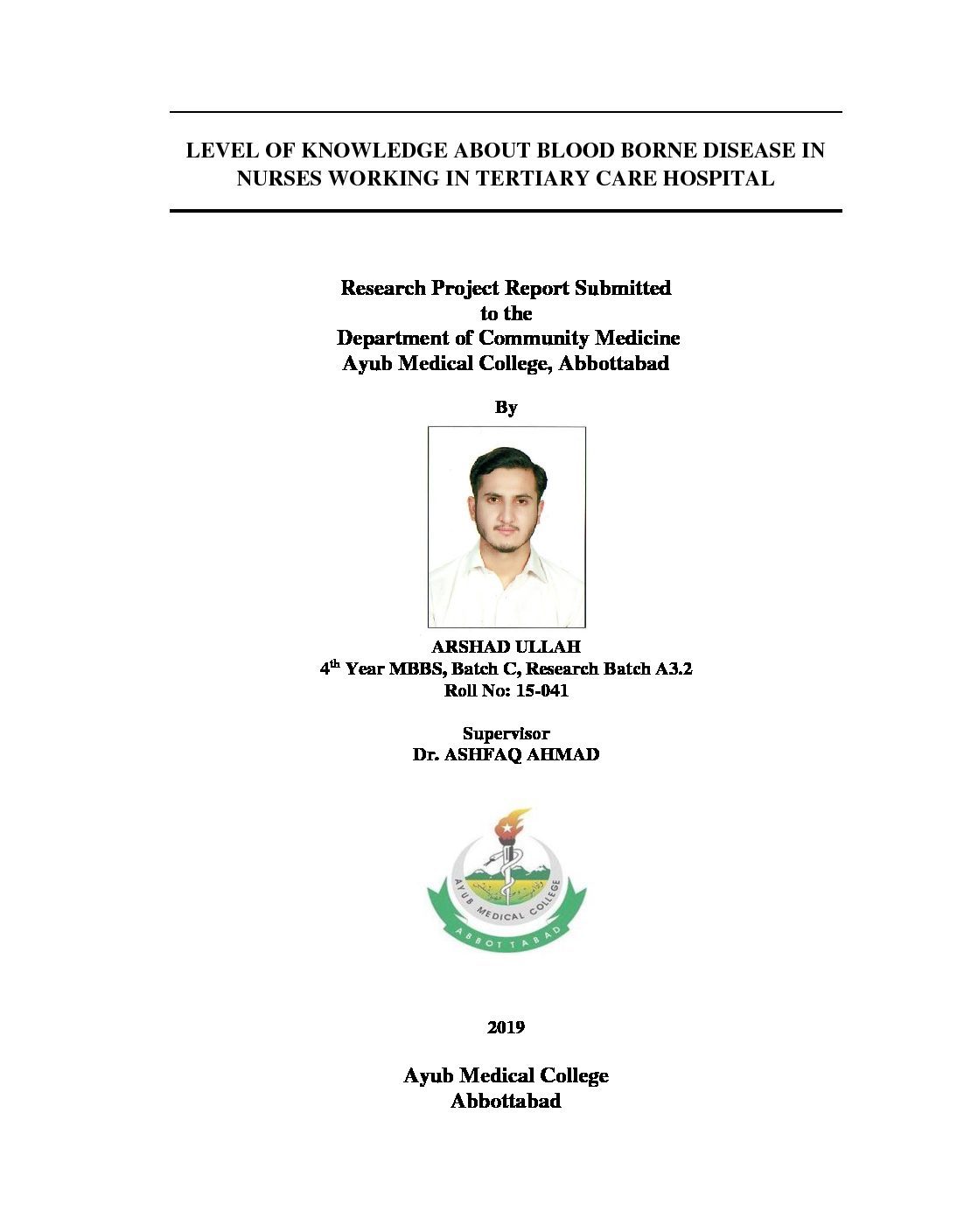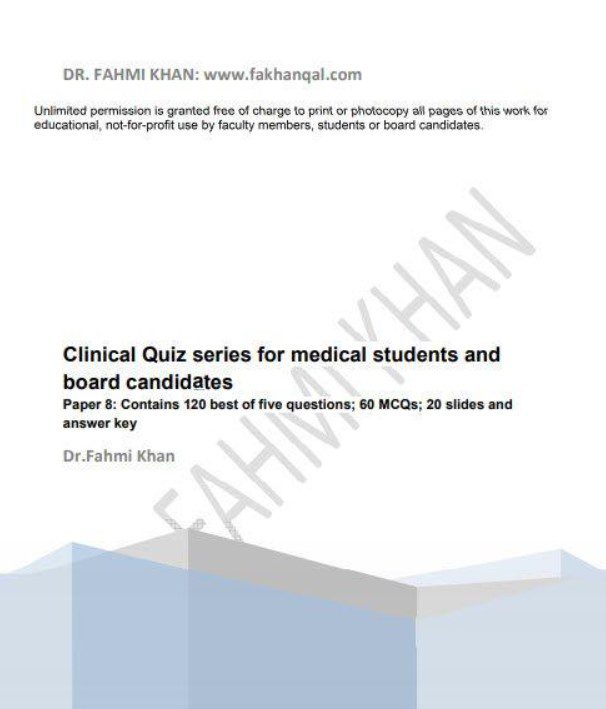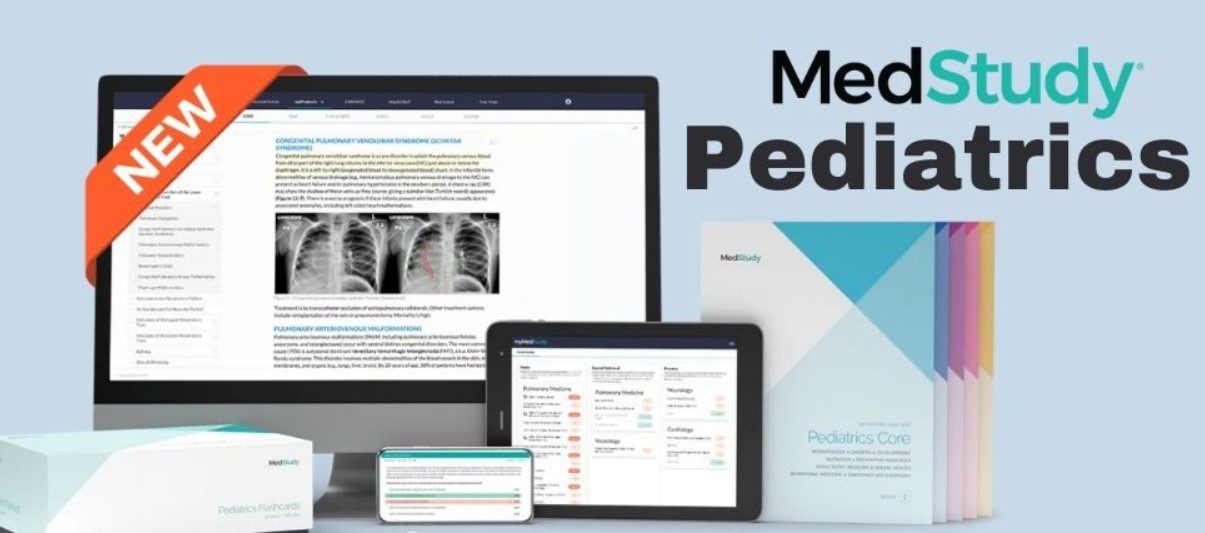ABSTRACT:
Background and purpose: Blood-borne pathogens (BBP) [hepatitis B virus (HBV), hepatitis C virus (HCV), and HIV] pose a considerable infectious risk for nurses, resulting in unwanted health outcomes and psychological stress.
Objective: The study aimed to assess the level of knowledge among nurses working in a tertiary care hospital about blood borne diseases like HIV/AIDS, Hepatitis B and C etc.
Methods: A cross-sectional study was carried out from December 2018 to June 2019 using an interview based questionnaire. Interview was taken from 107 nurses working in the Ayub teaching Hospital, Madian Abbottabad, with a response rate of 89.16% (107/120).
Results: A total of 107 nurses participated with 91(85%) females and 16(15%) males. The nurses are of different ages with mean 30.14. 57(53.3%) nurses are diplomate, 10(9.3%) are graduate, 40(37.4) are undergraduates. Majority of them are staff nurses.
91(85%) nurses correctly defined the term blood borne disease, 5(4.7%) cannot defined correctly and 11(10.3%) did not know about this definition. 80(74.8%) known about the name and causative agents of blood borne diseases, 13(12.1%) wrongly answered, 1(.9%) did not know about it, 13(12.1%) are missing. 30(28.0%) correctly answered about the risk factors of blood borne disease, 24(22.4%) wrongly answered and 53(49.5%) don’t know risk factors of these diseases.
21(19.6%) answered that Hepatitis B is preventable. 2(1.9%) answered that Hepatitis C is preventable, 3(2.8%) answered about AIDS, 8(7.5%) answered that Hepatitis B and C both are preventable, 34(31.8%) answered that all blood borne diseases is preventable, 39(36.4%) don’t about it. After getting needle stick injury, 31(29.0%) answered that they consult to physician, 19(17.8%) answered they vaccinate themselves,16(15%) answered for screening,10(9.3%) answered both for vaccination and screening, 16(15.0%) said other methods and 15(14.0%) don’t know about it. 53(49.5%) answered that blood borne diseases have effective treatment, 34(31.8%) answered that they are not treatable, 20(18.7%) don’t about it.
Overall 12.1% don’t know about these infections. 18.7% are in satisfactory category, 58.9% are in good and 10.3% are in excellent category.
Conclusion: Both the knowledge and the practice of Ayub teaching hospital’s nurses against BBP and Infection Control standards were fair. In our study about 70% of nurses have reasonable knowledge about blood borne infections. But 30% have inadequate knowledge about these infections. Healthcare facilities should focus on increasing nurses’ awareness for strict adherence to Infection Control standards, and implement training and preventive programs to minimize the risk of needle-stick injuries. All nurses should be vaccinated against HBV.
Keywords: blood borne diseases, blood-borne pathogens, infection control, knowledge, nurses, practice

Download:
You can download the pfd of full research (Level of knowledge about blood borne diseases in nurses working in a tertiary care hospital) from the link below;
If you have any question, write it in the comment box below.






![ALL NEET-PG Stuff 2023 Free Download [Mega Collection] ALL NEET-PG Stuff 2022 Free Download [Mega Collection]](https://medicalstudyzone.com/wp-content/uploads/2022/05/ALL-NEET-PG-Stuff-2022-Free-Download-Mega-Collection.jpg)

Leave a Reply